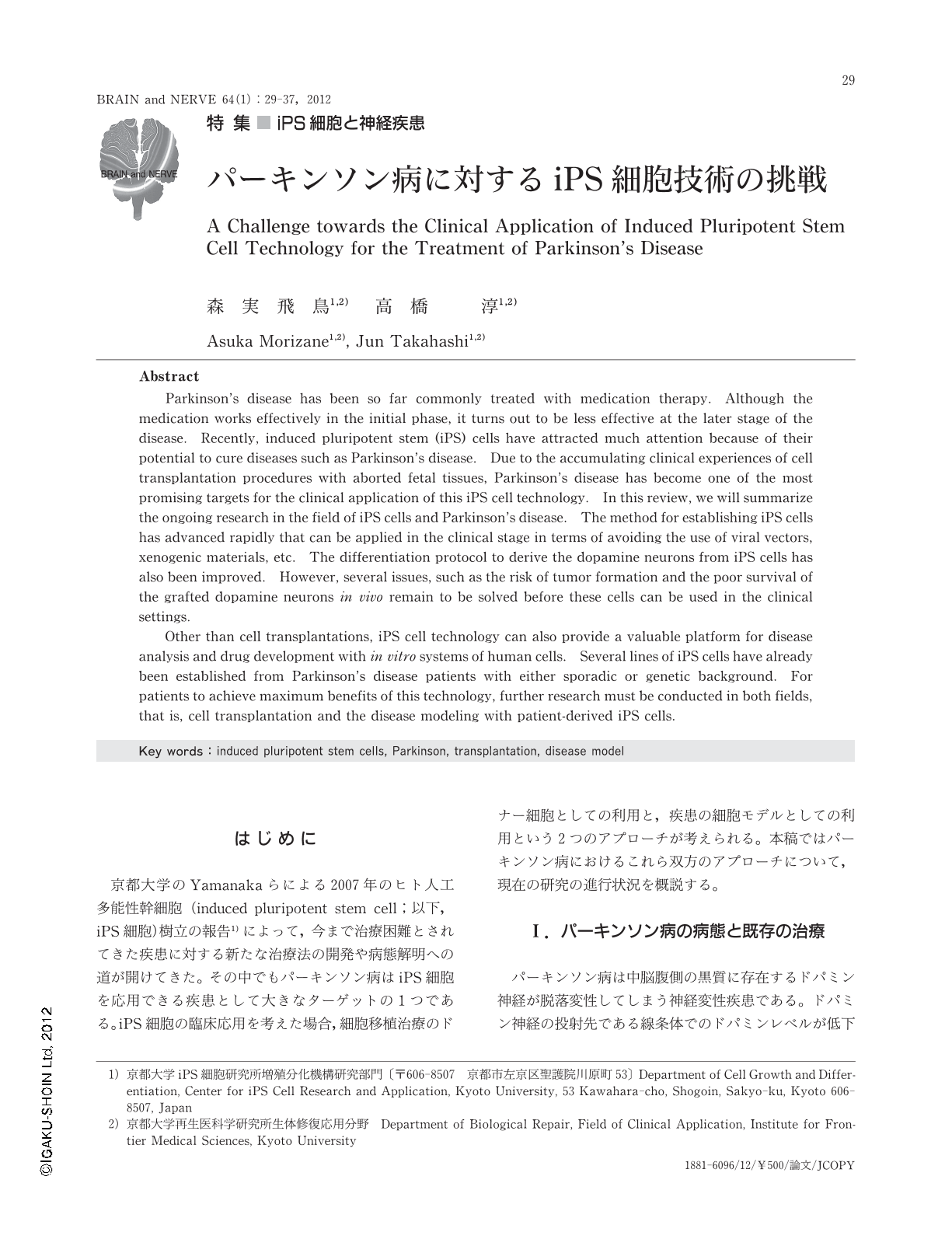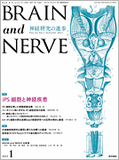Japanese
English
- 有料閲覧
- Abstract 文献概要
- 1ページ目 Look Inside
- 参考文献 Reference
はじめに
京都大学のYamanakaらによる2007年のヒト人工多能性幹細胞(induced pluripotent stem cell;以下,iPS細胞)樹立の報告1)によって,今まで治療困難とされてきた疾患に対する新たな治療法の開発や病態解明への道が開けてきた。その中でもパーキンソン病はiPS細胞を応用できる疾患として大きなターゲットの1つである。iPS細胞の臨床応用を考えた場合,細胞移植治療のドナー細胞としての利用と,疾患の細胞モデルとしての利用という2つのアプローチが考えられる。本稿ではパーキンソン病におけるこれら双方のアプローチについて,現在の研究の進行状況を概説する。
Abstract
Parkinson's disease has been so far commonly treated with medication therapy. Although the medication works effectively in the initial phase, it turns out to be less effective at the later stage of the disease. Recently, induced pluripotent stem (iPS) cells have attracted much attention because of their potential to cure diseases such as Parkinson's disease. Due to the accumulating clinical experiences of cell transplantation procedures with aborted fetal tissues, Parkinson's disease has become one of the most promising targets for the clinical application of this iPS cell technology. In this review, we will summarize the ongoing research in the field of iPS cells and Parkinson's disease. The method for establishing iPS cells has advanced rapidly that can be applied in the clinical stage in terms of avoiding the use of viral vectors, xenogenic materials, etc. The differentiation protocol to derive the dopamine neurons from iPS cells has also been improved. However, several issues, such as the risk of tumor formation and the poor survival of the grafted dopamine neurons in vivo remain to be solved before these cells can be used in the clinical settings.
Other than cell transplantations,iPS cell technology can also provide a valuable platform for disease analysis and drug development with in vitro systems of human cells. Several lines of iPS cells have already been established from Parkinson's disease patients with either sporadic or genetic background. For patients to achieve maximum benefits of this technology,further research must be conducted in both fields,that is,cell transplantation and the disease modeling with patient-derived iPS cells.

Copyright © 2012, Igaku-Shoin Ltd. All rights reserved.


